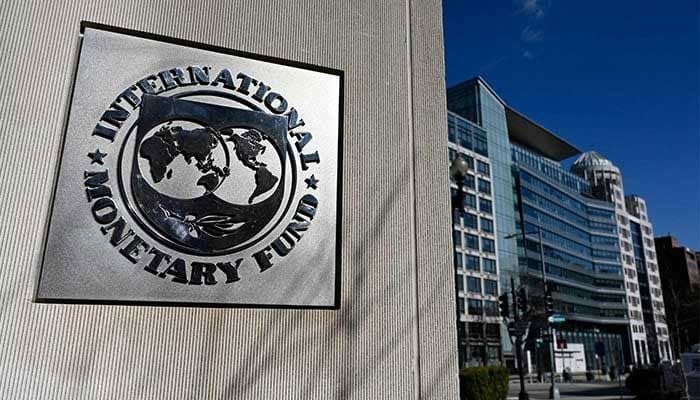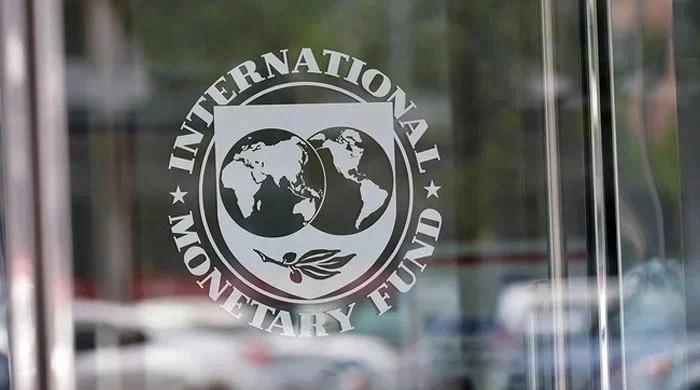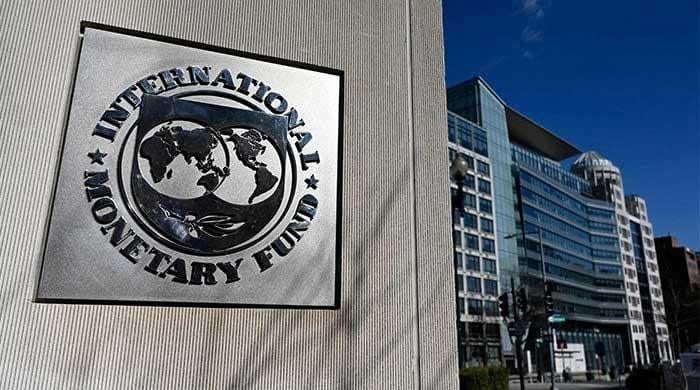IMF stresses reforms for bolstering anti-money laundering legislation
Govt to raise formal objections to lender's draft report under Governance and Corruption Diagnostic
August 16, 2025

- IMF to publish GCD Assessment to identify structural reforms.
- Lender to analyse governance and corruption vulnerabilities.
- Govt intends to raise formal objections to the IMF's draft report.
ISLAMABAD: The International Monetary Fund (IMF) has recommended strengthening the operational effectiveness of National Accountability Bureau (NAB) and introducing further reforms to bolster Anti-Money Laundering (AML) legislation in Pakistan, The News reported on Saturday.
However, the government plans to raise formal objections to the IMF's draft report under the Governance and Corruption Diagnostic (GCD) Assessment, contending that several identified shortcomings in the technical report do not accurately reflect on-ground realities.
"We have received the IMF's draft GCD Assessment. We intend to submit detailed observations and feedback — particularly concerning money laundering and counter-terror financing — on behalf of various departments before the report’s final publication, expected by the end of August 2025," senior official sources confirmed to the publication.
Pakistan has committed to the IMF to strengthen its institutional framework and capacities to combat corruption, in order to support inclusive growth and ensure a level playing field for businesses and investment.
The IMF intends to publish the GCD Assessment to analyse key governance and corruption vulnerabilities and to identify priority structural reforms. An action plan will be developed in response and included in the final GCD report, which is scheduled for publication by the end of October 2025.
Following the completion of the United Nations Convention against Corruption (UNCAC) review process, the cabinet convened a committee in March to assess the UNCAC Review Report.
Based on the committee's recommendations, the cabinet plans to publish the full UNCAC Review Report and make it publicly available on the government’s website, as well as through NAB and the Provincial Anti-Corruption Establishments (PACEs).
In the light of a recent Supreme Court decision on a petition concerning the NAB Ordinance, the government will continue to improve NAB's operational effectiveness and independence, particularly in investigating corruption cases involving sums above Rs500 million. Coordination with other investigative agencies, including the Federal Investigation Agency (FIA) and PACEs, will also be strengthened.
By the AML Act and the National Fiscal Pact, the Financial Monitoring Unit (FMU) will, by the end of December, issue the relevant federal notification designating PACEs to investigate money laundering offences linked to corruption within their jurisdictions. They will also be authorised to request and receive financial intelligence from the FMU in their capacity as investigating agencies.
To further operationalise the Government Servants (Conduct) Rules, 1964 (Sections 12, 13, and 13-A), and in line with the Right to Information Act, 2017, Pakistan has amended the Civil Servants Act, 1973 to mandate that asset declarations of senior public officials (BPS 17–22) — including both domestic and foreign assets beneficially owned by them or their family members — be filed digitally and made publicly accessible.
Appropriate safeguards will be in place to protect sensitive personal information such as ID numbers, residential addresses, bank account numbers, and bond details.
The Establishment Division and Federal Board of Revenue (FBR) will issue regulations to centralise the collection, digitise submissions, publish information (subject to data protection safeguards), and carry out risk-based verification of declarations.
Both the Establishment Division and the FBR are currently coordinating efforts and undertaking necessary preparations to ensure the timely implementation of this reform, with support from relevant federal ministries.
Under the initiative titled Banks' Access to Asset Declarations for AML/CFT Purposes, Pakistan has committed to ensuring that the State Bank of Pakistan (SBP), FBR, and FMU continue to facilitate banks’ access to asset declarations of senior federal public officials (BPS 17-22). This measure is intended to help banks fulfil their AML/CFT obligations and improve risk profiling of politically exposed persons (PEPs).
In December 2024, the FBR launched a new digital portal (Customer Due Diligence Online Portal) to enable banks to electronically request information and receive timely responses — typically within 24 hours.
In alignment with the National Fiscal Pacts, the provinces, with support from the FBR, Establishment Division and Ministry of Finance, will issue corresponding regulations to grant similar access to asset declarations of senior provincial public officials (BPS 17-22).











